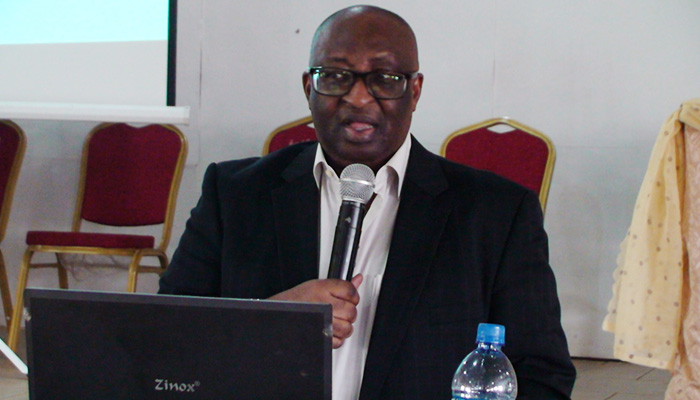A Professor of Economics has spoken of the need for the Federal Government to use the country’s oil revenues to build infrastructures as is done in other countries.
Professor Akpan H. Ekpo, speaking at a workshop on the Nigeria Natural Resource Charter, NNRC, Bench-marking Exercise Report, said Federal Government should use oil revenue to finance Nigeria’s development,
Ekpo, a former Director of the Central Bank of Nigeria, CBN, who is also a member of the Expert Advisory Panel of the NNRC, observed that this was necessary because oil is a wasting asset that would deplete one day.
Obinna Chidoka, Chairman, House of Representatives’ Committee on Environment and Habitat, called on the Federal Government to be cautious in using oil and gas revenue to finance the country’s development.
He said the Federal Government had allowed itself to be spoon-fed by international oil companies operating in the country, which determine revenues that accrue to the country.
Chidoka noted “That is what we want to see, because in the next 40 years, there will not be oil, according to predictions. Forty years might look far but it is around the corner,” he declared.
He further stated that the country should focus more on local refining of crude oil, while only the surplus quantity should be exported.
“First of all, we should begin to emphasis more on refining our crude at home and then whatever surplus we have, we send abroad, like we did in the 1980s. People forget that, we used to refine our crude oil and use some. Right now, all we do is we keep exporting crude oil.
“Although the petroleum industry brings us revenue, we are not even sure it is enough, because its output is informed by foreign companies. That is why I argued that beginning from now, let’s use the oil money to build infrastructure, so that years to come, we can say oil money did this. Except we do that, we will not get much,” he remarked.
Also speaking, Mr. Obinna Chidoka, Chairman, House Committee on Environment and habitat, who was represented by a member of the committee, Mr. Henry Nwawuba, lamented that Nigeria had over the years not positioned itself to truly benefit from the petroleum industry.
He said, “We entered into Joint Venture agreements and we ceded the entire operations to our JV partners. We depend on the JV partners to tell us how much it cost them to operate, and what the meters are saying in terms of quantity produced.
He argued that efforts should be geared towards ensuring that the country has a JV agreement that is hinged on operations and monitoring in a way that would favour this country.
Chidoka, therefore, called on stakeholders to partner with the relevant committees of the House of Representatives, especially the Committee on Environment and the technical Committee handling the Petroleum Industry Governance Bill, PIGB, so that when the law is passed, it would be reflective of the views of all critical stakeholders in the industry.
Speaking in the same vein, Tengi George-Ikoli, Project Coordinator, NNRC, said the essence of the benchmarking exercise, which is based on 12 precepts, was aimed at getting critical stakeholders to decide on an action plan, sell ideas of the sector reforms and bring about key changes that would ensure that the report achieve its aim of advocacy.
She said the report would determine the extent to which Nigeria is complying with the 12 charters used to assess the country, adding that the report would present recommendations and suggestions on how the industry would function effectively.
On his part, Mr. Henry Adigun, Team Lead, Facility for Oil Sector Transformation, FOSTER, stated that Nigeria was still at the primary levels of the industry.
According to him, over the years, petroleum had benefitted only a minute fraction of the Nigerian population and had failed to make meaningful contribution to Nigeria’s economic growth and development.

